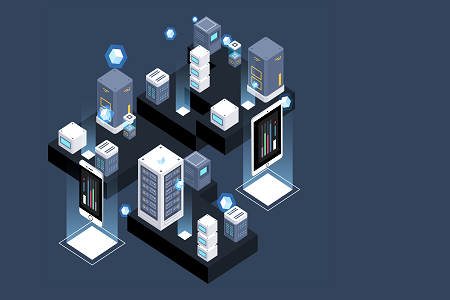Salient IT Services › Data backup services Folsom
What you need to know about data backup services in Folsom
For modern companies, any loss of data means a loss of productivity and that translates to a loss of income. The good news is that it’s possible to guard against this through an effective data backup strategy. With that in mind, here is a quick guide to what you need to know about data backup services in Folsom.
The better you manage your data collection, the better you can manage your data backups
Data backups are essentially a snapshot of your production data at a specific point in time. They are used to get you back into production after an interruption to your data. Since most SMBs are likely to be working in the cloud (at least for the most part), there is a direct cost to every data item you store, both in production and as a data backup (and as a data archive although this cost is much lower). This means that anything you can reasonably do to limit the quantity of data you collect/produce will lower your costs through this chain.
In addition to thinking carefully about what data you actually need (especially with regards to sensitive data), you need to ensure that you enforce a robust data-collection process. The end goal should be to have only data that is complete, accurate and standardized. Usually, the best means to achieve this is to look at the way data is entered and, as far as possible, using data-entry methods that enforce standardized formatting and validation (e.g. drop-down menus).
The quicker your purge expired data, the better you can manage your data backups
Most data has a life-cycle. It starts out as active, production data, but, at some point, becomes dormant. If you keep dormant data in your production system, it will impact the storage and bandwidth you use as well as the time you need to back up your data and, possibly more importantly, to restore from your data backups. This will all contribute to avoidable costs.
As a result, you need a robust process for ensuring that dormant data is always moved swiftly out of production. Ideally, it should be deleted unless there is an active reason for keeping it (e.g. compliance). If, however, you have dormant data which you’re really not comfortable deleting, then, at the very least, put it in a data archive. This will be cheaper and you can always restore it if anyone complains (or delete it if they don’t).
The more you fine-tune your data backup settings, the better you can manage your costs
How you manage your data backups depends heavily on your Recovery Time Objective(s) and your Recovery Point Objective(s). Essentially, these define how quickly you need your data to come back online and how long you can go between data backups. In the world of data centers, you would probably just have one RTO and one RPO for all of your data. In the world of the cloud, by contrast, you can have different RTOs and RPOs for different categories of data, to reflect your business objectives while keeping costs down.

In terms of RTO, the key point to note is that shorter RTOs benefit from faster storage. This is the most expensive storage, so, from a cost-management perspective, you want to use it only where necessary. If you can work out what data is essential to your core tasks, you can prioritize this so your staff members can at least get on with some work while they wait for the rest of the production data to become available to them.
In terms of RPO, the key point to note is that shorter RPOs require more bandwidth as you have to take data backups more frequently. The more bandwidth you use, the more you pay. This is likely to be particularly true for anyone backing up data from one public cloud to another as data transfers from the first public cloud to the internet are not only likely to be chargeable but likely to be chargeable at a particularly high rate. Therefore, you want to keep your shortest RPOs for the data you can least afford to have lost and, of course, vice versa.
Remember that data backups (and archives) must be lawful and compliant
Data protection laws apply to data regardless of the format in which it is held and they apply to the owner of the data, i.e. you, not any IT services vendors you use. It is therefore strongly recommended to exercise robust vendor selection and to make sure that your service contract is enforceable in practice rather than just in theory.
If you’d like to speak to a reputable and experienced data backup services provider in Lodi, please click here now to contact Salient IT.


 (3 votes, average: 3.67 out of 5)
(3 votes, average: 3.67 out of 5)
